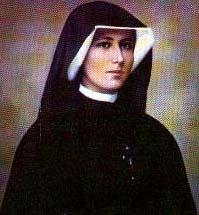Saint
Ignatius of Loyola (also known as Inigo Lopez de Loyola) was born in
1491A.D. at Loyola, Guipuzcoa, Spain, as Inigo Lopez de Loyola. He
was Spanish nobility, and the youngest of twelve children. He was a
page in the Spanish court of Ferdinand and Isabella, and he received
a military education.
He
entered the army in 1517, and served in several campaigns. He was
seriously wounded in the leg by a cannonball at the siege of
Pampeluna on May 20, 1521, an injury that left him partially crippled
for life.
During
his recuperation, the only books he had access to were “The
Golden Legend”, a collection of lives of the saints,
and the Life of Christ by Ludolph the Carthusian. These books, and
the time spent in contemplation, changed him.
Upon
his recovery, he took a vow of chastity, hung his sword before the
altar of the Virgin of Montserrat, and donned a pilgrim's robes. He
lived in a cave from 1522 to 1523, contemplating the way to live a
Christian life. He wrote about his religious experiences, and later
made them the foundation for the spiritual exercises, which
he drew up for his Order.
He
was a pilgrim to Rome and the Holy Land in 1523, where he worked to
convert Muslims. In 1528, he began studying theology in Barcelona,
Alcala, and Paris, receiving his degree in 1534. His meditations,
prayers, visions and insights led to forming the Constitutions of the
Society of Jesus in August of 1534, and the order received papal
approval in 1541.
Ignatius
was a friend of James Lainez, Alonso Salmerón, Nicholas Bobadilla,
Simón Rodriguez, Blessed Peter Faber, and Saint
Francis Xavier, the group that formed the core of the new
Society. He never used the term Jesuit, which was coined as an insult
by his adversaries. Today the Society uses the term with pride.
He
traveled Europe and the Holy Lands, and then
settled in Rome to direct the Jesuits. His health suffered in later
years, and he was nearly blind at death.
Today
the Jesuits have over 500 universities and colleges, 30,000 members,
and teach over 200,000 students each year.
Saint
Ignatius of Loyola died of fever in 1556 at Rome, Italy. His relics
are at the Gesu in Rome, Italy.
Below
are some quotations from Saint Ignatius of Loyola:
Do
not let any occasion of gaining merit pass without taking care to
draw some spiritual profit from it; as, for example, from a sharp
word which someone may say to you; from an act of obedience imposed
against your will; from an opportunity which may occur to humble
yourself, or to practice charity, sweetness, and patience. All of
these occasions are gain for you, and you should seek to procure
them; and at the close of that day, when the greatest number of them
have come to you, you should go to rest most cheerful and pleased, as
the merchant does on the day when he had had most chance for making
money; for on that day business has prospered with him.
If
God causes you to suffer much, it is a sign that He has great designs
for you, and that He certainly intends to make you a saint. And if
you wish to become a great saint, entreat Him yourself to give you
much opportunity for suffering; for there is no wood better to kindle
the fire of holy love than the wood of the cross, which Christ used
for His own great sacrifice of boundless charity.
Idleness
begets a life of discontent. It develops self-love, which is the
cause of all our miseries, and renders us unworthy to receive the
favors of divine love.
He
is generous even to exhaustion; and what is most wonderful is, that
He gives Himself thus entirely, not once only, but every day, if we
wish it. Every fresh Communion is a new gift which Jesus Christ makes
of Himself.
Few
souls understand what God would accomplish in them if they were to
abandon themselves unreservedly to Him and if they were to allow His
grace to mold them accordingly.






